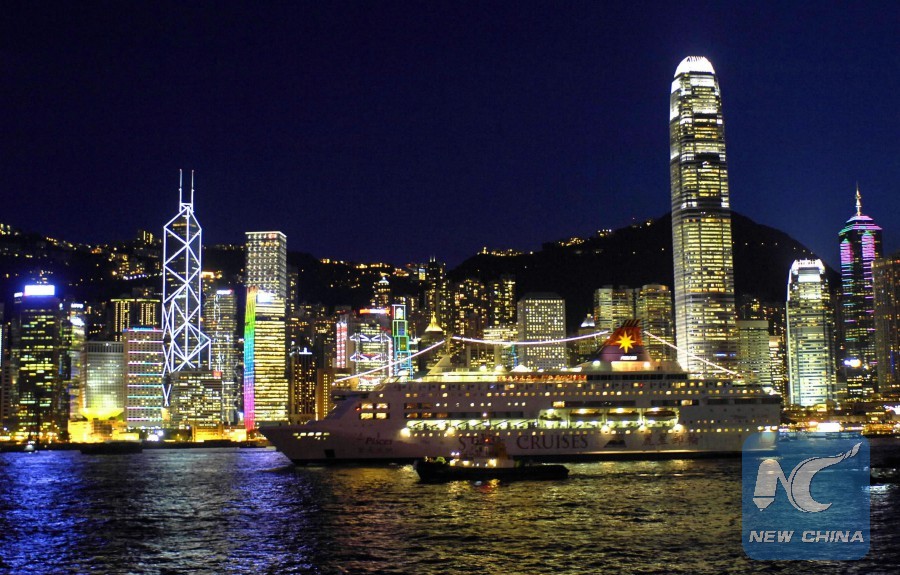Internationalization of higher education in Hong Kong
- By Mathew Wong
 0 Comment(s)
0 Comment(s) Print
Print E-mail China.org.cn, May 8, 2018
E-mail China.org.cn, May 8, 2018

Higher education has long played an important role in increasing the progress of a society. Universities across the globe have been transforming themselves to meet the needs of the21st century. While the world becomes more globalized with the uptake of knowledge-based economy, universities play a key role in nurturing local talent and attracting foreign expertise to enhance the competitiveness of the labor force. Singapore, for instance, has been at the forefront of the competition for talent in a bid to become an education hub, inviting renowned foreign universities to establish a local presence, with varying degrees of success. The process of internationalization in Hong Kong could also provide a lesson for China, which has been rapidly expanding its higher education system as well as increasing its global presence.
Hong Kong's internationalization agenda, driven by the University Grants Committee (UGC) which controls the funding of universities and various international ranking agencies by incorporating internationalization as an indicator of good performance, can be observed along two dimensions.
Firstly, internationalization focuses on the recruitment of non-local or international students. Compared to ten years ago, the numbers of non-local students studying in the UGC-funded institutions in Hong Kong have indeed increased at least fivefold. While this effort looks impressive, however, the majority of non-local students originated in the Chinese mainland. So although this reflects that Hong Kong can attract a significant number of Chinese students, there is still much room for local universities to increase the proportion of students from Asia and other parts of the world under the wider goal of true internationalization.
The second dimension for internationalization refers to the integration of the Hong Kong's universities into an active network of relationships with international counterparts by demonstrating their "world-class" performance through international rankings. Certain universities in Hong Kong--as with some of the top Chinese universities--have been ranked high in the system and made good use of their institutional reputation to explore markets for higher education outside Hong Kong, especially in the mainland. They have also explored opportunities to collaborate with Chinese universities to jointly offer self-financed postgraduate programs and courses in China. Local universities also utilize their own institutions' international prestige to build ties with overseas partners to offer programs and undertake collaborative research projects.
Making Hong Kong a regional education hub through internationalization has been a policy goal since the mid-2000s, aimed at creating a larger pool of local and non-local talents to keep the city on the track of sustainable development. Internationalization also implies a fundamental change in the character of higher education, as not just a public good to be guaranteed by the government, but as a commodity for economic exchange, as has been shown in the U.K., the U.S., Australia, Canada and Singapore. Accordingly, local universities have targeted students from across Asia and the world to strive for greater diversity of nationality and cultural background.
In the face of fiscal deficits, however, the Hong Kong government has simultaneously shrunk university resources. It has thus proposed that universities substantially increase tuition fees for non-local students, as well as open self-financing associates and master courses, to increase income flow and balance dwindling budgets. Bounded by high tuition fees,the quality of higher education needs to be further assessed and scrutinized through both internal and external audits to guarantee that academic standards will not be compromised with an influx of non-local students.
Local universities are at a crossroads of competition and collaboration. Without a doubt, they are continually competing for talented staff and students, research funding, international reputation and social donations--and this competition leads to stimulation and improvement. Meanwhile, institutional collaboration is of paramount importance to prevent the unnecessary waste of resources by avoiding redundancy of teaching and research efforts. Competition and collaboration are not mutually exclusive but complementary in the healthy development of higher education. A two-pronged strategy among universities should be adopted to ensure both continuous advancement and more effective use of limited resources. In the meantime, exchanges of academics, students, and knowledge across national boundaries, as well as the recruitment of non-local and international students, remain crucial to the development of Hong Kong's higher education sector.
Dr. Mathew Wong is an Assistant Professor in the Department of Politics and Public Administration at the University of Hong Kong.
Opinion articles reflect the views of their authors, not necessarily those of China.org.cn.






Go to Forum >>0 Comment(s)